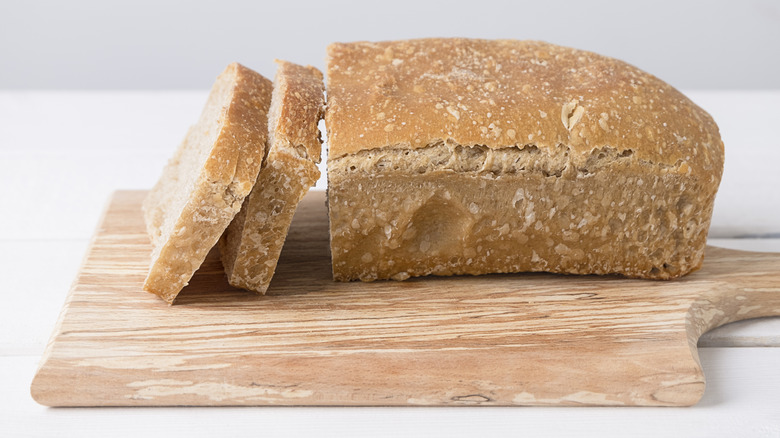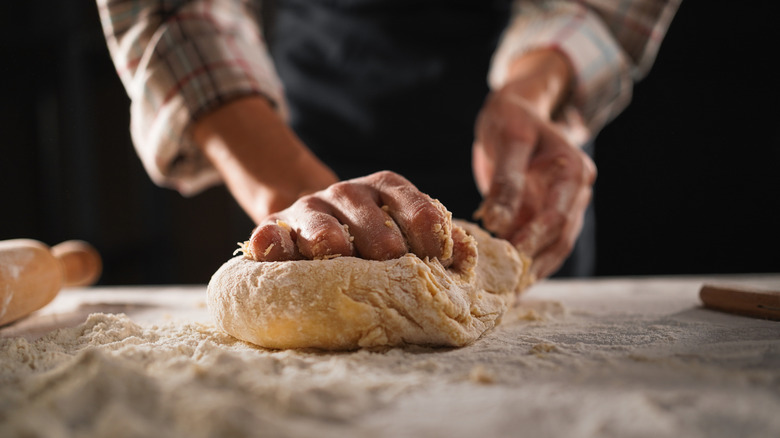Here's The Reason Homemade Bread Never Has That Bakery Fluff To It
Whether it's one of those rustic sourdough boules beloved of pandemic bakers or a low-effort loaf shaped in a convenient bread maker, homemade breads all have one thing in common: a certain density that sets them apart from bread you might purchase at the supermarket or in a bakery. This isn't to say you should give up on bread baking as a hobby, since even if the final product is almost inedible, the baking process itself is still beneficial for your overall well-being. If you do want to make your bread better, though, food formulation consultant Ed McCormick explains why that bakery-fresh softness is lacking and what you can do to compensate.
McCormick, who sells natural additives on his website Cape Crystal Brands, discloses that yes, it's all about the ingredients. (Or partially about them, at any rate.) Specifically, the ones you're probably not using, especially if you're the kind of minimalist who sticks with flour, salt, and yeast. "Professional bakery results come from controlled fermentation, precise humidity, and a few invisible helpers that most home kitchens just don't have access to," he tells The Takeout. "Ingredients like lecithin, enzymes (amylase), and ascorbic acid (vitamin C) strengthen gluten bonds, improve gas retention, and produce that pillowy crumb." Still, even without special equipment or conditions, he assures us there are steps that home bakers can take to achieve similar results.
How to bake fluffier bread at home
"Bakery bread is fluffier thanks to food-science precision, and you can borrow that science at home without sacrificing naturalness or sustainability," asserts Ed McCormick. He advises using additives, of course, and notes that a pinch of wheat gluten along with a teaspoon of sunflower lecithin, xanthan gum, or another gentle hydrocolloid will help your bread stay soft.
Hydration is also key. As McCormick explains, "Many ... homemade doughs stay tight because home bakers don't give them enough water. The water is not just there to be wet — it's a medium needed for gluten proteins to stretch out and develop their full potential." You'll also need to knead the dough adequately in order for it to develop the necessary gluten. Finally, he suggests putting a pan of hot water under the loaf as it bakes. The steam it produces may help you mimic the steam-injected ovens that bakeries use. "These special ovens delay crust formation, help the dough expand fully, and thus give lighter loaves," says McCormick.

